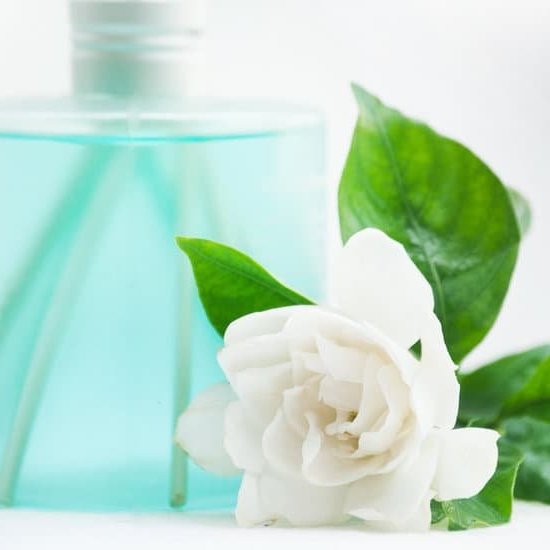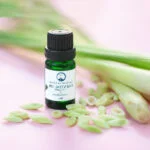Aromatherapy is a popular complementary therapy that involves the use of essential oils to promote physical and psychological well-being. However, when it comes to pregnancy, many women are cautious about whether aromatherapy is safe for them and their developing baby. In this article, we will explore the safety aspects of using aromatherapy during pregnancy and provide insights into the benefits, risks, and precautions associated with this practice.
Pregnancy is a delicate period where women need to be mindful of what they expose themselves to, including the use of essential oils in aromatherapy. While some essential oils can offer relief from common pregnancy symptoms such as nausea, fatigue, and stress, others may pose potential risks to both mother and baby if used incorrectly. Therefore, understanding which essential oils are safe for pregnant women is crucial in ensuring a positive experience with aromatherapy during this special time.
As we delve deeper into the topic of aromatherapy in pregnancy, we will discuss the benefits that expectant mothers can reap from this natural therapy. From alleviating discomforts like swollen ankles and back pain to reducing anxiety and promoting relaxation, aromatherapy has been praised for its ability to enhance overall well-being during pregnancy. By learning how to use essential oils safely under professional guidance, pregnant women can incorporate aromatherapy into their self-care routine with peace of mind.
Benefits of Aromatherapy During Pregnancy
Aromatherapy during pregnancy can offer a variety of benefits for expectant mothers, both physically and emotionally. One of the primary advantages is the ability to alleviate common pregnancy symptoms such as nausea, fatigue, and stress. Certain essential oils like ginger, peppermint, and lavender have been known to help ease these discomforts and promote relaxation. This natural approach to wellness can provide a gentle and soothing alternative to traditional medications.
Emotional Support
In addition to addressing physical symptoms, aromatherapy can also provide emotional support during pregnancy. The hormonal changes that occur during this time can often lead to mood swings, anxiety, and feelings of overwhelm. Essential oils like chamomile, rose, and ylang-ylang are known for their calming effects and can help pregnant women find balance and emotional well-being. Incorporating aromatherapy into a self-care routine can create a nurturing environment that promotes positivity and relaxation.
Bonding With Baby
Another benefit of using aromatherapy during pregnancy is the opportunity it provides for mothers to bond with their unborn baby. Through the use of gentle scents and massage techniques, expectant mothers can create a peaceful atmosphere that brings them closer to their little one.
Aromatherapy rituals like belly massages or inhaling comforting scents can enhance the connection between mother and baby, fostering a sense of nurturing and calmness. This bonding experience is aromatherapy safe in pregnancy enhances the overall well-being of both mother and child.
Risks and Precautions of Using Aromatherapy in Pregnancy
One of the most essential aspects to consider when contemplating the use of aromatherapy during pregnancy is the potential risks and precautions associated with it. While aromatherapy can offer numerous benefits, it is crucial for expectant mothers to be aware of certain safety measures to ensure a healthy and safe experience. Consulting with a healthcare provider before incorporating aromatherapy into your pregnancy routine is highly recommended.
It is important to note that not all essential oils are safe for use during pregnancy. Some oils may have contraindications that could potentially harm both the mother and the baby. Certain essential oils are known to stimulate uterine contractions, which may pose a risk of premature labor. Additionally, some oils may cause skin irritation or allergic reactions, especially during this sensitive time.
To minimize risks when using aromatherapy in pregnancy, it is advisable to dilute essential oils properly before applying them topically or inhaling them through diffusion. Aromatherapy practitioners suggest using a lower concentration of essential oils than usual and opting for gentle, soothing scents like lavender or chamomile. It is also wise to avoid using certain oils altogether, such as clary sage, pennyroyal, and wintergreen, which are known to be potentially harmful during pregnancy.
| Risks and Precautions | Of Using Aromatherapy |
|---|---|
| Consulting with healthcare provider | before incorporating aromatherapy into routine is crucial. |
| Dilute essential oils properly | before applying them topically or inhaling them. |
| Avoid using certain oils like clary sage, | pennyroyal, and wintergreen known to be harmful. |
Safe Essential Oils for Pregnant Women
During pregnancy, many women turn to aromatherapy as a natural way to alleviate the various discomforts that come with this special time. However, it is crucial to be cautious and informed about which essential oils are safe to use during pregnancy.
Not all essential oils are suitable for expecting mothers, as some can have adverse effects on both the mother and the baby. Below is a list of safe essential oils for pregnant women, along with their potential benefits:
- Lavender oil: Known for its calming properties, lavender oil can help pregnant women relax and unwind. It may also assist in improving sleep quality, reducing anxiety, and relieving mild aches and pains.
- Chamomile oil: Chamomile oil is gentle and soothing, making it a great choice for easing nausea or morning sickness during pregnancy. It can also promote better sleep and help reduce stress levels.
- Citrus oils (such as orange or lemon): Citrus oils are uplifting and energizing, providing a natural mood boost for pregnant women experiencing fatigue or mood swings. They can also act as mild disinfectants when used in cleaning products.
While these essential oils are generally considered safe for use during pregnancy when diluted properly and used in moderation, it is important to consult with a healthcare provider before incorporating them into your routine. It is recommended to perform patch tests before using any essential oil topically to ensure there are no adverse reactions on the skin. Remember that each pregnancy is unique, so what works well for one expectant mother may not necessarily work well for another.
- Avoid using these essential oils directly without dilution
- Do not ingest any essential oils during pregnancy
- Always follow proper dilution guidelines recommended by aromatherapists or healthcare providers
By being mindful of the safety precautions and choosing the right essential oils, pregnant women can safely enjoy the benefits of aromatherapy throughout their journey to motherhood. As always, when in doubt about the safety of certain essential oils during pregnancy – consult a qualified healthcare provider or aromatherapist.
How to Use Aromatherapy Safely During Pregnancy
Aromatherapy can be a beneficial and relaxing practice for pregnant women, but it is essential to use it safely to avoid any potential risks. When considering aromatherapy during pregnancy, there are specific precautions and guidelines that should be followed to ensure the well-being of both the mother and the baby.
It is crucial to consult with a healthcare provider before incorporating aromatherapy into your pregnancy routine to address any concerns or risks that may be specific to your individual situation.
One of the safest ways to use aromatherapy during pregnancy is through inhalation methods such as diffusers or inhalers. This method allows you to benefit from the therapeutic properties of essential oils without direct contact with the skin or ingestion, reducing the risk of adverse reactions.
Another safe option is to dilute essential oils in a carrier oil and apply them topically, but it is important to use proper dilution ratios as some essential oils can be irritating or sensitizing, especially during pregnancy.
When using aromatherapy in pregnancy, it is crucial to choose high-quality, pure essential oils from reputable sources. Some essential oils are not recommended for use during pregnancy due to their potential effects on hormone levels or uterine contractions.
It is also advisable to avoid certain essential oils during the first trimester when the risk of miscarriage is higher. Overall, with proper guidance and caution, aromatherapy can be a safe and enjoyable addition to prenatal self-care routines for many expectant mothers.
| Safe Practices for Aromatherapy During Pregnancy | Benefits |
|---|---|
| Consult healthcare provider before use | Relaxation and stress relief |
| Use inhalation methods like diffusers | Improved sleep quality |
| Dilute essential oils properly for topical application | Reduced nausea and headaches |
Research and Studies on Aromatherapy in Pregnancy
Current Research Findings
Recent research on the use of aromatherapy in pregnancy has provided valuable insights into its safety and effectiveness. According to a study published in the Journal of Alternative and Complementary Medicine, aromatherapy can help reduce anxiety, stress, and improve sleep quality in pregnant women.
Another study in the Journal of Obstetrics and Gynecology found that certain essential oils used in aromatherapy can alleviate common pregnancy symptoms like nausea and fatigue. These findings suggest that when used properly, aromatherapy can be a beneficial complementary therapy for expectant mothers.
Recent Studies on Safety
While there is limited research specifically focused on the safety of aromatherapy in pregnancy, a study conducted by the International Journal of Obstetrics & Gynecology revealed that when used correctly and under guidance, aromatherapy is generally safe for pregnant women. However, it is crucial to note that not all essential oils are safe during pregnancy.
Consulting with a qualified healthcare provider before incorporating any essential oils into your routine is highly recommended to ensure the well-being of both mother and baby.
Areas for Further Exploration
Despite some promising findings on the benefits of aromatherapy during pregnancy, more research is needed to fully understand its impact on maternal health and fetal development. Future studies could investigate the long-term effects of aromatherapy on childbirth outcomes, postpartum recovery, and infant health.
Additionally, exploring different delivery methods and dosages of essential oils could provide valuable information on maximizing the benefits while minimizing any potential risks associated with aromatherapy use during pregnancy. Overall, continued research efforts will help guide expectant mothers towards making informed decisions about integrating aromatherapy into their prenatal care routine.
Alternative Aromatherapy Practices for Pregnant Women
Aromatherapy can be a beneficial practice for pregnant women, but it is essential to consider alternatives that are safe and suitable for use during pregnancy. Here are some alternative aromatherapy practices that pregnant women can explore:
- Hydrosols: Hydrosols are aromatic waters produced during the steam distillation of plants for essential oils. They are milder and gentler than essential oils, making them a safer option for pregnant women. Hydrosols can be used as facial mists, body sprays, or added to baths for a subtle aroma.
- Carrier Oils: Instead of using concentrated essential oils directly on the skin, pregnant women can opt for carrier oils such as jojoba, coconut, or sweet almond oil. Carrier oils dilute essential oils and help reduce the risk of skin irritation or sensitization during pregnancy.
- Aromatic Baths: Aromatic baths with natural ingredients like Epsom salts and dried herbs can provide relaxation and relief to pregnant women without the need for essential oils. Adding fresh flowers or citrus peels to bathwater can create a fragrant and calming experience.
It is important to remember that not all alternative aromatherapy practices may be suitable for every pregnant woman. Consulting with a healthcare provider or certified aromatherapist is recommended before trying any new methods during pregnancy.
By exploring alternative options like hydrosols, carrier oils, and aromatic baths, pregnant women can still enjoy the benefits of aromatherapy in a safe and gentle way throughout their pregnancy journey. Remembering to prioritize safety and moderation is key to experiencing the soothing effects of aromatherapy while expecting a child.
Consultation With Healthcare Providers Before Using Aromatherapy in Pregnancy
During pregnancy, many women turn to alternative therapies like aromatherapy to help alleviate some of the discomforts that come with carrying a baby. However, it is essential for expecting mothers to consult with their healthcare providers before using any essential oils or aromatherapy practices. This precaution is crucial because certain essential oils can have adverse effects on both the mother and the developing fetus if used incorrectly.
Healthcare providers are well-equipped to provide personalized advice based on the individual’s medical history, current health condition, and the specific essential oil in question. They can help determine which essential oils are safe to use during pregnancy and offer guidance on proper dosages and application methods. Additionally, they can identify any potential contraindications that may exist due to preexisting medical conditions or medications the mother is taking.
While many essential oils are considered safe for use during pregnancy when used appropriately, some oils should be avoided altogether. These include oils like pennyroyal, rosemary, basil, sage, camphor, wintergreen, and others that have been known to cause uterine contractions or other adverse effects. By consulting with healthcare providers before using aromatherapy during pregnancy, expectant mothers can ensure they are making choices that prioritize their health and safety as well as that of their unborn child.
Conclusion
In conclusion, the question “Is aromatherapy safe in pregnancy?” is a valid concern for expectant mothers looking to incorporate holistic practices into their prenatal care routine. While aromatherapy can offer numerous benefits such as stress relief, improved sleep, and reduced nausea during pregnancy, it is essential to exercise caution and follow safety guidelines to ensure the well-being of both the mother and baby.
Consulting with healthcare providers before using aromatherapy in pregnancy is crucial, as they can provide personalized recommendations based on individual health conditions and concerns. Pregnant women should also be mindful of the risks and precautions associated with certain essential oils that may have adverse effects on fetal development or trigger allergic reactions.
Furthermore, research and studies on aromatherapy in pregnancy continue to provide valuable insights into its efficacy and safety. Alternative aromatherapy practices, such as diffusing oils rather than applying them topically or ingesting them, can minimize potential risks while still reaping the benefits of this natural therapeutic approach. Ultimately, by being informed and practicing safe use of essential oils, expectant mothers can enjoy the soothing effects of aromatherapy throughout their pregnancy journey.
Frequently Asked Questions
Is It Safe to Use Aromatherapy Oils During Pregnancy?
Using aromatherapy oils during pregnancy can be safe when done cautiously and under the guidance of a healthcare provider. Some essential oils are not recommended during pregnancy as they may trigger contractions or other adverse reactions.
Is It Safe to Use an Air Diffuser While Pregnant?
While using an air diffuser during pregnancy is generally considered safe, it is important to be mindful of the essential oils being diffused. Certain oils can be harmful during pregnancy, so it is advisable to seek advice from a healthcare professional before use.
What Smells Should You Avoid While Pregnant?
Pregnant women should avoid strong-smelling essential oils like peppermint, rosemary, and clary sage as they can potentially stimulate contractions or have other adverse effects on pregnancy. It’s best to opt for milder scents and consult with a healthcare provider for guidance.

Are you looking for a natural way to improve your health and wellbeing?
If so, aromatherapy may be the answer for you.





